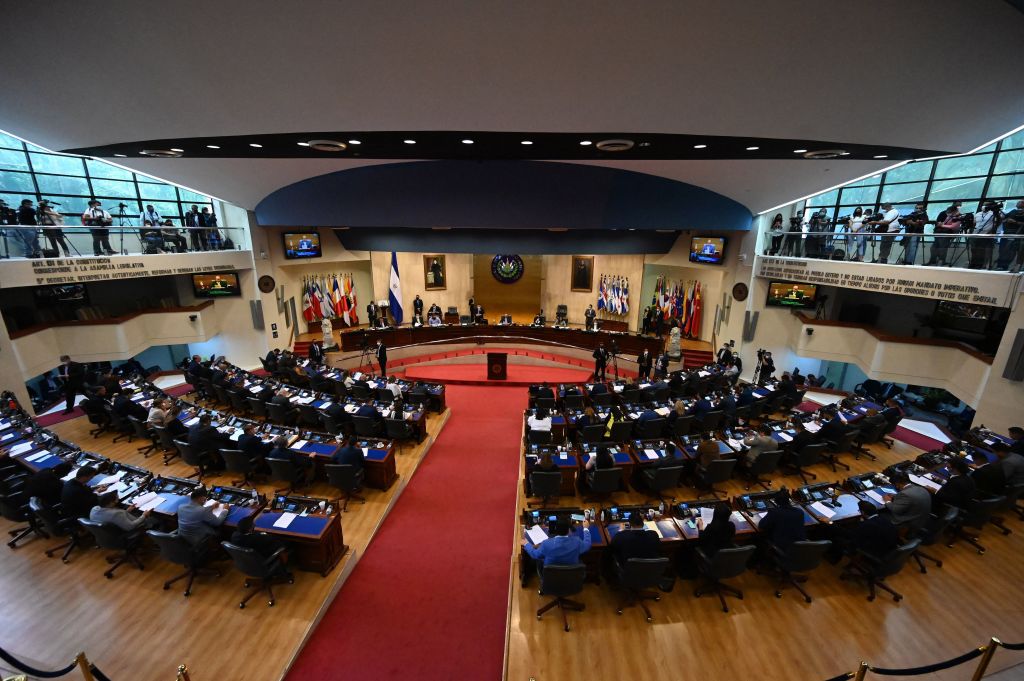The controversies of Nayib Bukele after four years of governing in El Salvador 7:09
(CNN Spanish)-- The Legislative Assembly of El Salvador, with a pro-government majority, approved on Wednesday to reduce the number of deputies from 84 to 60 as of the 2024 elections.
The measure passed 66 out of 84. President Nayib Bukele had asked for it during his speech for the fourth year of government.
The pro-government deputies described the decision as historic. "This reform is aimed at guaranteeing Salvadorans the right to equal voting," said Marcela Pineda, a deputy for New Ideas, President Bukele's party.
According to deputies who supported the reforms to the electoral law, the changes ensure that votes have the same value and allow candidates to compete on equal terms.
"No more deputies for waste," Bukele wrote Tuesday on Twitter, referring to the system of assigning lawmakers during the counting of votes in an election.
advertising
- President Nayib Bukele announces war on corruption in El Salvador
However, some opposition deputies in the Assembly criticized that the approval was carried out without prior study and warned that the new allocation system will affect small parties.
According to the reforms, the approved method states that the calculation must be proportional from 2024. In this way, the number of votes cast in each of the 14 departments will be divided by the number of deputies to be elected per department. That way you will get which candidates would win a deputation.
Following the approval of the reforms, the president of the Supreme Electoral Tribunal issued instructions to adopt the changes in the electoral plan in order to comply with the new provisions.
In November 2012, the Constitutional Chamber indicated that the allocation of seats, either by quotient or by residue as established by the country's Electoral Code, aims to guarantee the participation of minorities, without this meaning inequality in the value of votes.
The judges note in that ruling that the basic purpose of the proportional representation system is to ensure that there is the greatest possible correspondence between the number of votes and the seats won by the various political contestants.
Ruth López, legal head of Anticorruption and Justice of the organization Cristosal, told CNN that the reforms approved by the Assembly have as a background an electoral calculation on the part of the ruling party, in order to guarantee that it will maintain control of the Assembly so that President Bukele prolongs the concentration of power.
"He needs to ensure that the control institutions do not function again and for that he needs to have full control of the Legislative Assembly. It cannot lose deputies because that would imply the election of independent people at the head of the institutions of accountability," López said.
The deputies left pending the discussion on the reduction from 262 to 44 the number of mayors from the next elections, also requested by the Executive.
In 2024, El Salvador will again elect president and vice president, deputies of the Legislative Assembly, mayors and deputies to the Central American Parliament.
